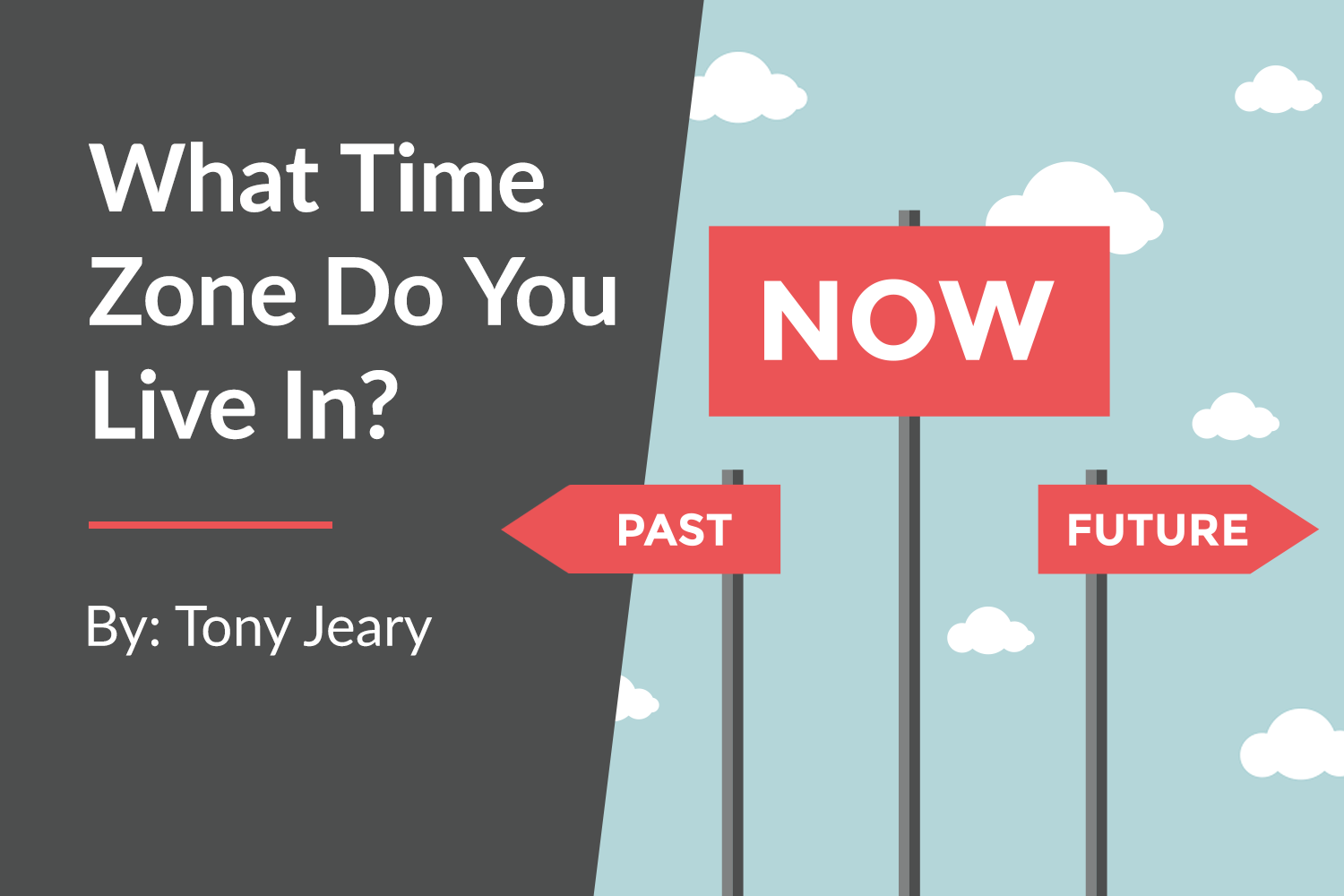
My wife and I were having a discussion the other night at dinner that sparked my interest and inspired me to write this article. We typically arrive at topics for these articles from best practices and concepts that come out of our studio sessions with clients, but this one came from an unexpected dinner conversation. This topic explores the question, “What Time Zone Do You Live In?”
When I say time zone, though, I don’t mean Central or Mountain Standard Time. I’m actually referring to the past, present or future. With this in mind, I propose to you the following question, and I encourage you to ponder it for a few moments:
“Do you primarily live in the past, present or future?”
Like many choices in life, there are advantages and disadvantages to all three options. I believe that it’s beneficial for everyone to experience living in each of the three time zones when appropriate and strategically move between zones while maintaining an awareness that you are transitioning from one to the other.
Living in the Past
Living in the past can have a negative connotation, however, setting aside time to reflect on memories can be productive. When you reflect on your past failures and successes, you are presented with the opportunity to study your behavior and extract patterns that can positively affect your present and future trajectory. You may even find that you inspire and energize yourself.
Family Videos
When my kids were young, I videoed just about everything. My kids are adults now, and I still like to video just about everything—oftentimes to their dismay.
About fifteen years ago, I had an intern working for us, and I asked her to go through all of our family videos that were on camcorder tapes and transfer them over to 125 DVDs. Although the project was tedious, she did a great job. She even labeled each DVD with a few notes about the content so we could quickly locate them.
My family would spend several Saturdays re-watching our favorite memories for many years to come. This brought tons of laughter and appreciation for each other to our lives, which I believe has the power to strengthen any family. Do you leverage the past as much as you could?
Living in the Present
Now, let’s talk about the present. We’re often presented with opportunities to stop and smell the roses and time to enjoy a beautiful sunset. However, we are often so consumed by stress and by thinking about what’s going to happen in the future that we fail to seize these opportunities. Healthy levels of worry and stress do have a place in life. They’re our mind’s natural reactions to unsustainable behaviors or potentially dangerous situations. They’re warnings triggered by our present self that tell us to change or adapt to ensure the health and survival of our future self.
When you successfully live in the present, you become more connected to others around you and learn to appreciate more. This can help alleviate much of your worry and stress.
Living in the Future
The future is the time zone you’ll find me most frequently living in. I continually set goals, dream big, envision my future, smartly prepare, etc. There are many wins that stem from living in the future because doing so allows you to create back-up plans which help you avoid future mistakes. Spending time in this zone also allows you to map out how to attract more of what you want in life. It’s important to stay wary of spending too much time planning out your life that you forget to enjoy the product of your planning.
Vision Boarding
Vision boarding is one of my favorite ways to set goals for the future and to achieve the results you want. Check out our video below about how to start a vision board.
Reticular Activating System
Have you ever heard of the Reticular Activating System (RAS)? It’s a set of nerve pathways that connects to the base of your brain from your spinal cord. It’s a compact bundle of neurons the size and shape of your pinkie finger, and it acts as a gatekeeper with respect to the information around us. You can use your RAS to train your subconscious to attract what you want most. Check out our video below to learn more about this concept.
Final Overview
- Be aware of where you primarily live—the past, present, or future
- Note the benefits and consequences of living in each time zone
- Move between each time zone strategically